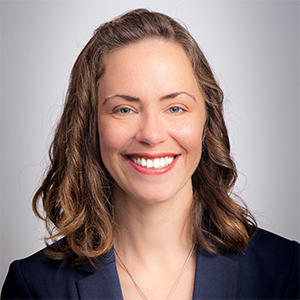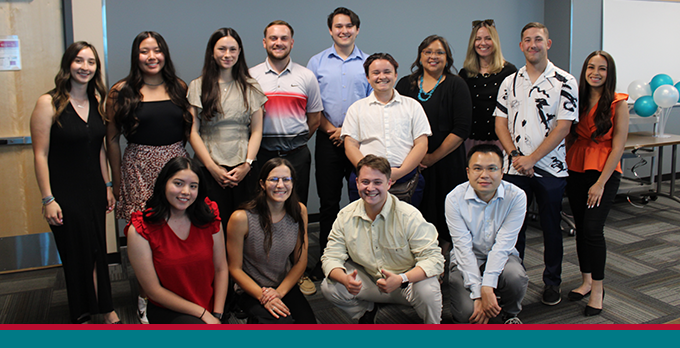In New Mexico’s small towns, health care providers do more than treat patients – they build relationships, solve problems and advocate for their communities.
The New Mexico Clinical Education Program, a summer program led by the Communities to Careers team at The University of New Mexico Health Sciences Office for Diversity, Equity and Inclusion, offers students the chance to experience this firsthand.
The program, established in 2002, aims to immerse students in the realities of health care in rural communities, while helping them develop their clinical skills.
The chance for students to shadow health care professionals in a primary care setting for five weeks offers invaluable hands-on training. It fosters empathy and, for many, sparks a passion for a career in health care.
Last summer, two UNM College of Nursing students, Jackelyn Olivas and Abrianna Notah-Johnson, took part in the program and were placed in Las Vegas, N.M., at El Centro Family Health.
Notah-Johnson, a student in the Freshman Direct-Entry Bachelor of Science in Nursing Program, was drawn to the opportunity because of her personal background.
“Growing up in Gallup, I experienced firsthand the barriers to health care,” Notah-Johnson said. “This program helped me understand a rural community that is different from mine. My plans are eventually to become a family nurse practitioner so that I can go back to my home and start up my own practice to address those health disparities.”
Olivas, a student in the Accelerated 2nd Degree Bachelor of Science in Nursing Program, shared how it deepened her understanding of the health care system.
“Patients in Las Vegas traveled for hours just to reach a clinic, and some had to choose between buying food or medication,” Olivas said. “Seeing those struggles firsthand changed my perspective.”
Both students gained insights by working with health care professionals and engaging with the local community. Olivas had the chance to observe various roles in the health care field.
“Watching nurses, medical assistants, pharmacy technicians and others work together gave me a better understanding of how the entire health care system functions,” she said.
For College of Nursing educators, this program offers a unique opportunity.
“Students get the chance to work directly with communities and individuals and learn about the impact that nurses have on the health of New Mexico,” said Mitch Irvin, the College of Nursing’s Direct Entry Option director. “The program provides an experience in a variety of settings and enables students to participate and observe nursing care throughout the state.”
Immersive learning like this can be transformative for students, Greene said.
"Las Vegas has experienced a lot of hardship due to the wildfires that happened, and this program immersed students in the daily life of these communities," she said. "It helped them to realize the continued health and environmental impacts – having access to clean water, food, or seeing how businesses and homes are impacted.”
Olivas and Notah-Johnson navigated new challenges throughout the program, from adjusting to a new environment to working with limited resources, but both found it to be a powerful learning experience.
"This program really shows why health care providers are so important in rural communities,” Notah-Johnson said. “It’s tough, but it’s worth it.”
The ClinEd Program is now accepting applications for the upcoming summer session. Click here for more information.
